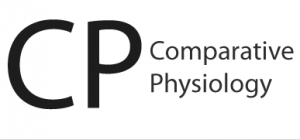Comparative Physiology @ Guelph
Comparative Physiology News
New paper from the Wright and Laberge labs featured on the CBS Website
Written as part of the CBS SCRIBE Writing initiative, take a few minutes to learn a little more about the mangrove rivulus and its behaviour both in and out of water....
Work by Sarah Boggett and Calli Freedman featured in Science
Work on hagfish by students Sarah Boggett and Calli Freedman featured in Science http://www.sciencemag.org/news/2017/01/how-slimy-hagfish-ties-itself-knots-and-survives-shark-attacks
Fudge Lab research featured in PNAS
The Fudge Lab's research on hagfish slime and biomimetics is featured in PNAS this week. http://www.pnas.org/content/113/26/7005.full
Undergraduate students take the lead!
Congratulations Wright Lab on your "cool" recent paper in Biology Letters. "Out of the frying pan into the air: Emersion behaviour and evaporative heat loss in an amphibious mangrove fish."
Consequences of calcium decline on the embryogenesis and life history of Daphnia magna
Ambient calcium is declining in thousands of soft-water lake habitats in temperate regions as a consequence of unsustainable forestry practices, decreased atmospheric calcium deposition, and acidic deposition. As their exoskeleton is heavily reinforced with calcium, freshwater crustaceans have a high specific calcium requirement relative to other aquatic organisms. Daphnia in particular, is an ideal crustacean for investigating the consequences of calcium decline because it is an abundant and important member of freshwater zooplankton communities. Although it has been established that adult and juvenile Daphnia have different tolerances to low ambient calcium as a result of their different life stage specific calcium requirements, the consequences of declining calcium on embryonic development have never been investigated. Here we describe the distribution of calcium in embryonic stages of D. magna and introduce a novel and easy to use staging scheme. We then tested whether calcium can be traced from mothers to their offspring. Finally we assessed fitness consequences of maternal provisioning in limiting calcium environments. We found that while embryos require calcium for their development and molting they do not equilibrate with environmental calcium levels. Instead we were able to trace calcium from mothers to their offspring. Furthermore our data strongly suggest that females are faced with an allocation trade-off between providing calcium to their offspring and using it for growth and molting. Together these data provide novel insights into the consequences of calcium decline for freshwater zooplankton.
New Review Paper
As part of a class project, a group of (eco)physiology graduate students collaborate to publish a review investigating the role of animal density in physiological studies, check out our paper here.
Koley Freeman wins a Bergstrom
Congratulations to Koley Freeman from Amy Newman's Lab for winning an E. Alexander Bergstrom Memorial Research Award from the Association of Field Ornithologists.
Andy Turko wins speaking award
Andy Turko from Pat Wright's lab is this year’s Department of Integrative Biology distinguished student speaker. Congratulations, Andy!
New paper by Fudge Lab in Annual Review of Biochemistry
Sarah Schorno and Shannon Ferraro are authors on a new review on hagfish slime in Annual Review of Biochemistry. Congratulations Sarah and Shannon!
New paper on lens mechanics from Fudge Lab
GJ Won from Vivian Choh's lab at the University of Waterloo recently published a paper in Molecular Vision that included some of the work he did in the Fudge Lab on the biomechanics of chick lenses and the contribution of the actomyosin cytoskeleton to the material...
